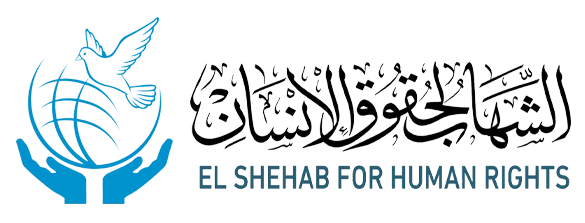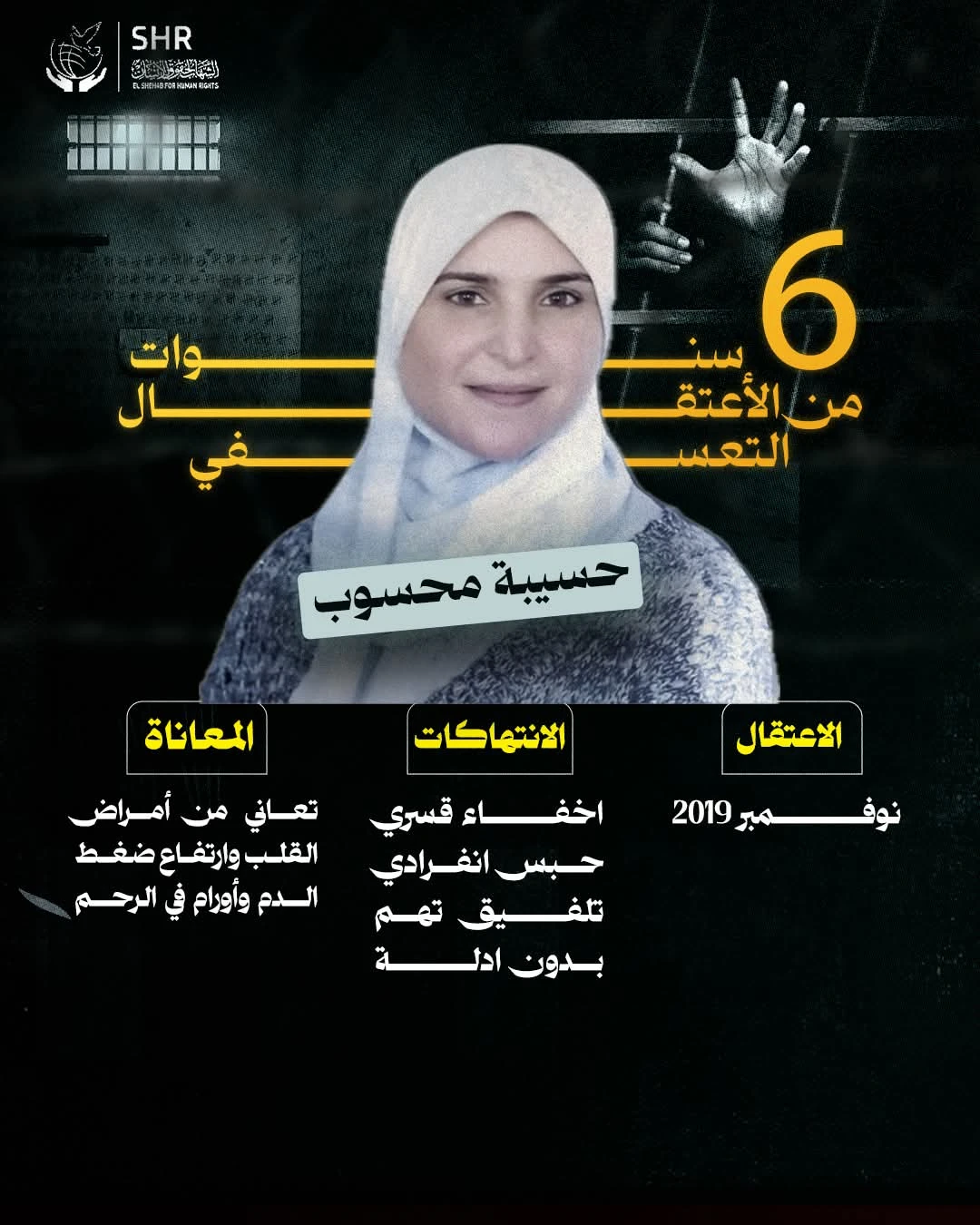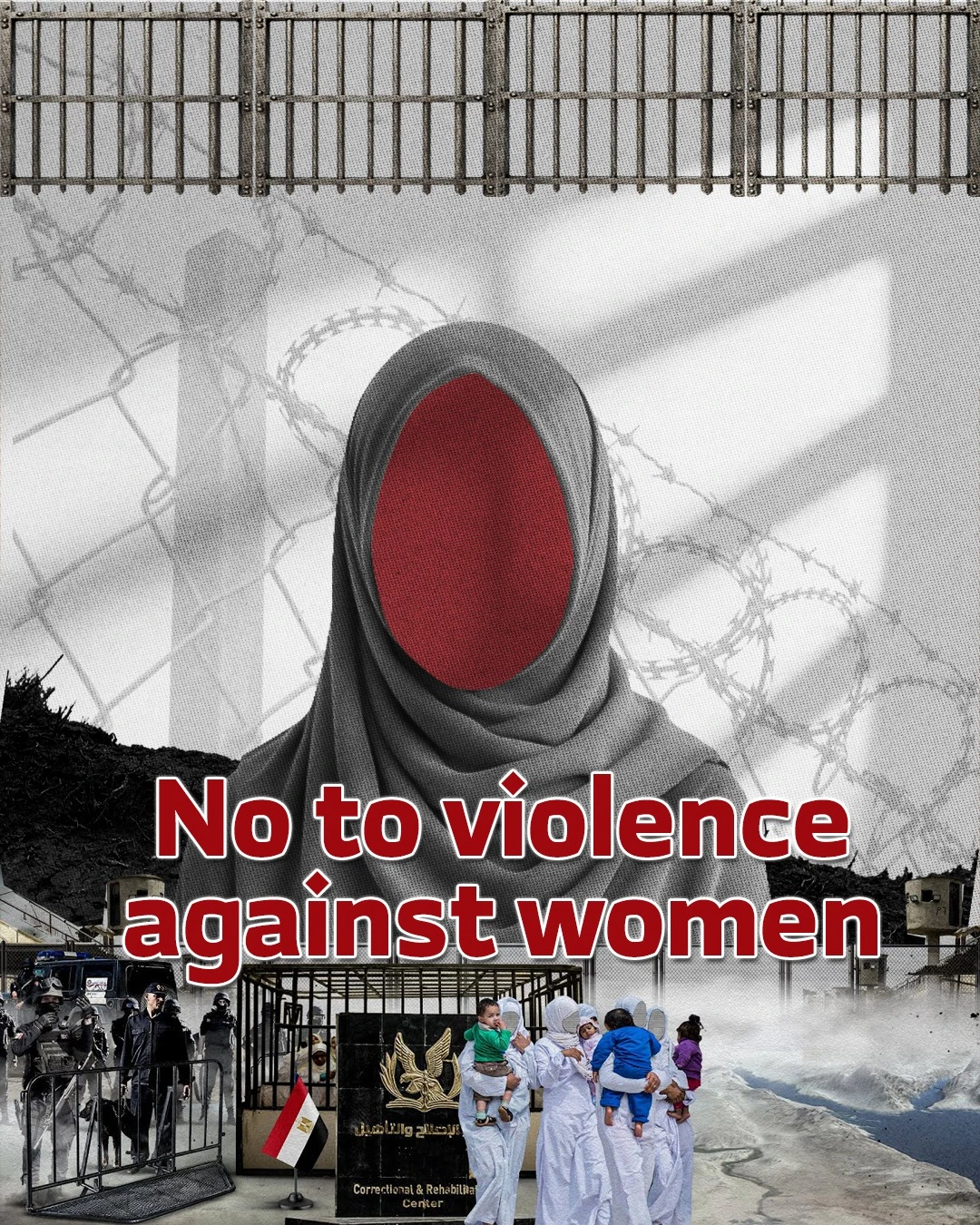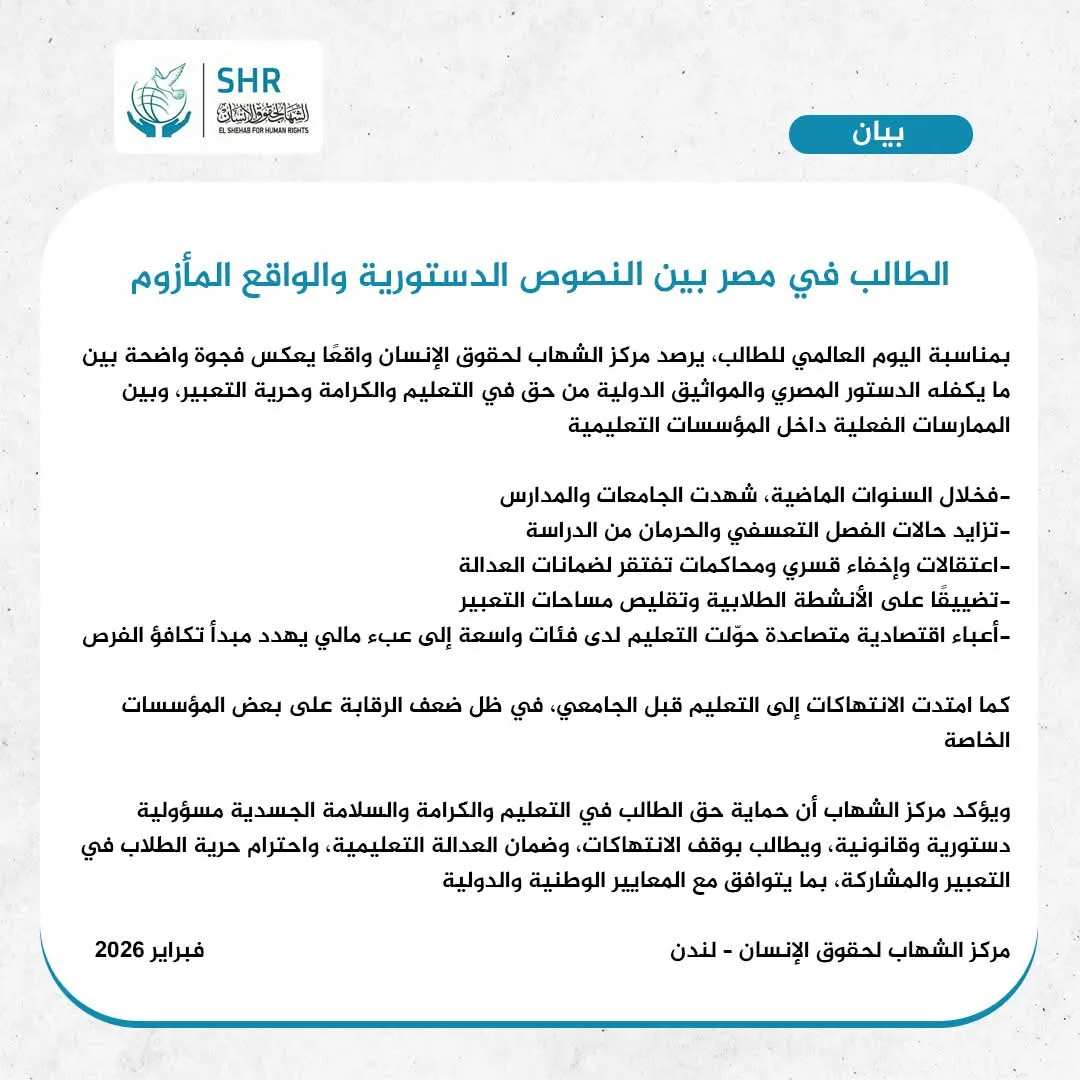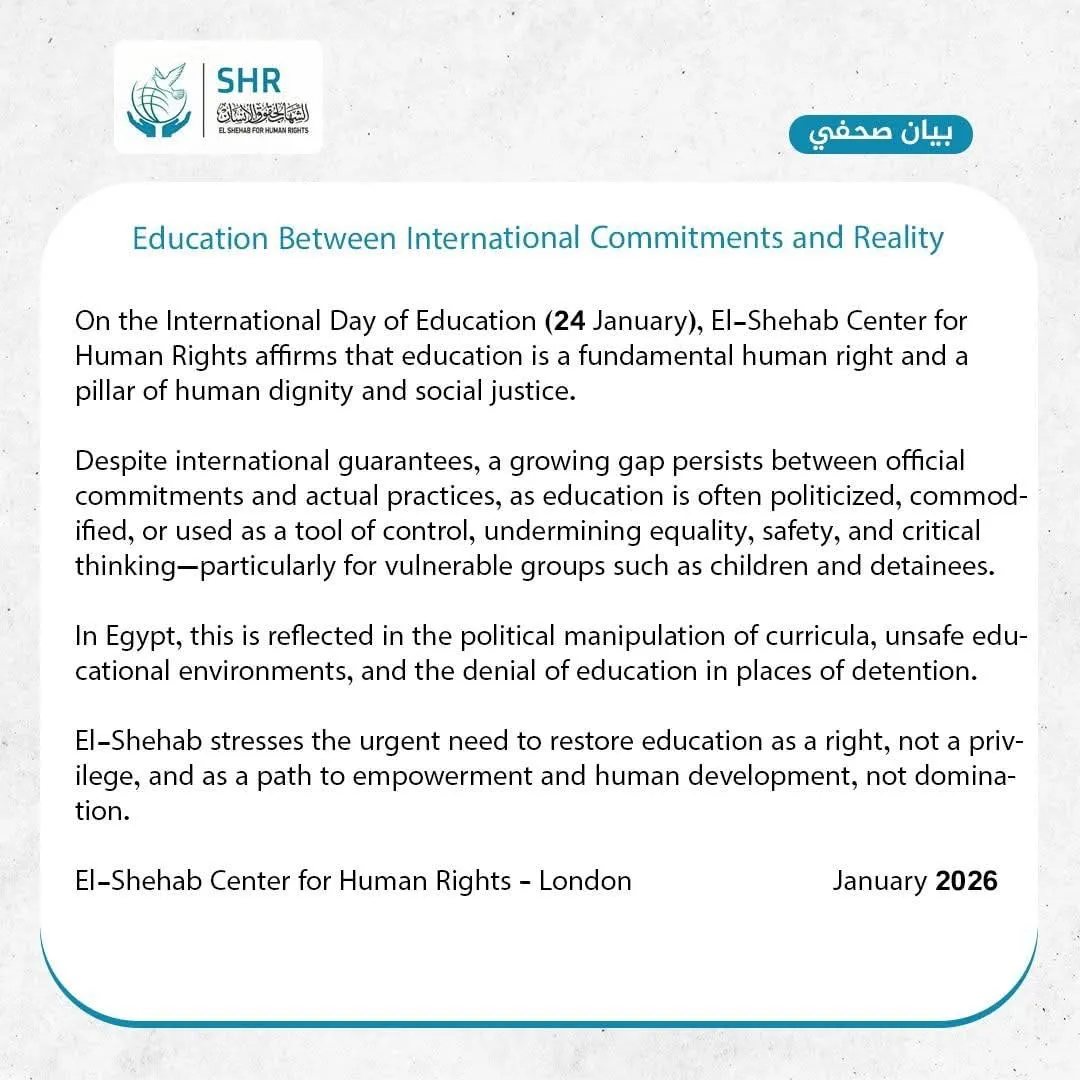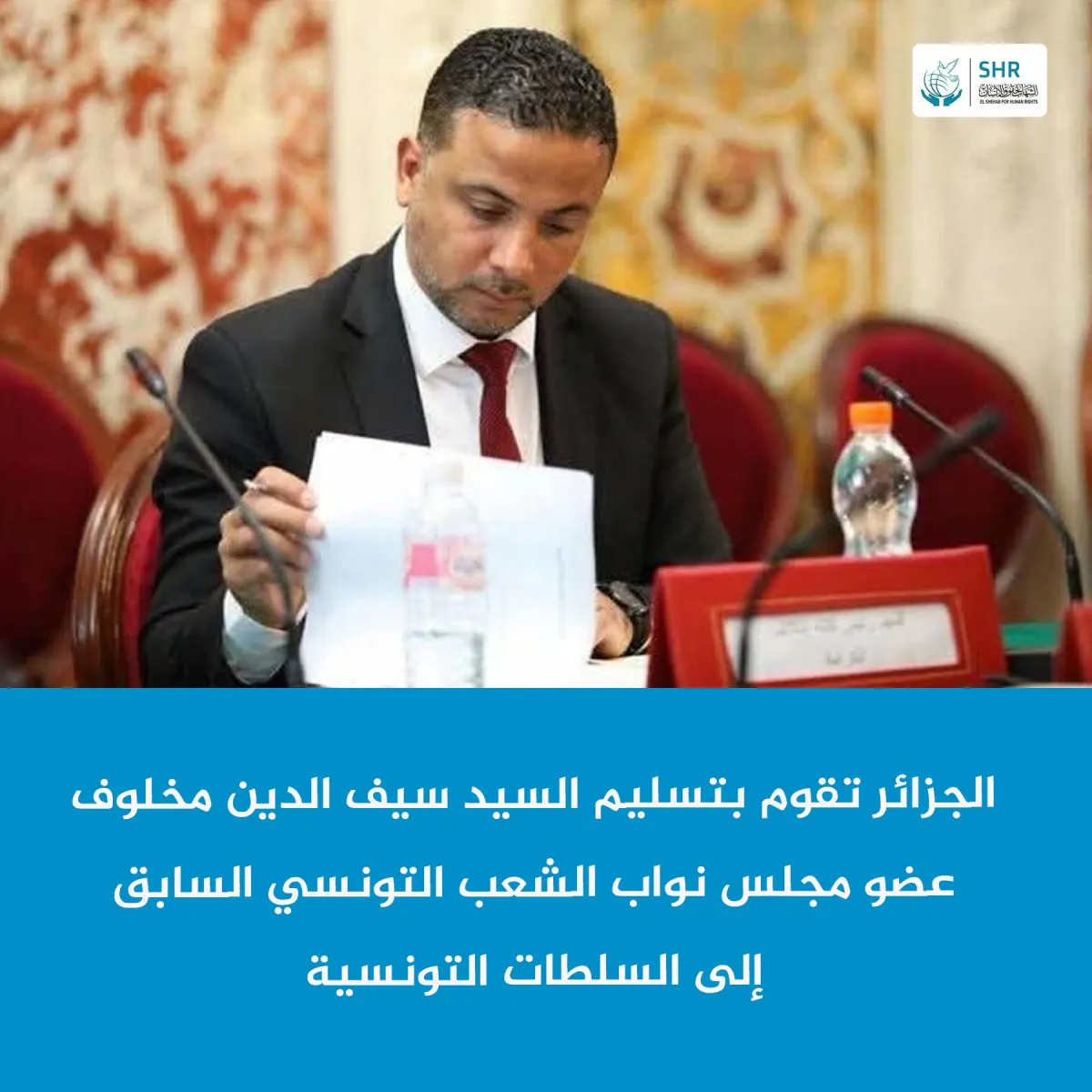International Day for the Elimination of Violence against Women
Women Between the Anvil of Reality and the Hammer of Violence
As part of global efforts to combat violence against women, and in line with the United Nations campaign “UNiTE to End Violence against Women and Girls in the Digital Space,” these international initiatives aim to highlight violations, strengthen protection, and enhance accountability. Globally, the campaign begins each year on 25 November as an established international tradition and a clear political and human rights message reminding governments and societies that violence against women is not a local issue confined to a single country, but a universal human concern that transcends borders and demands a unified international commitment to ending impunity and reinforcing mechanisms of protection and accountability.
The El-Shehab Center for Human Rights values the efforts made by international and local human rights organizations to combat all forms of violence against women. It also commends this year’s global campaign for focusing specifically on “violence against women in digital spaces,” recognizing it as a serious and rapidly expanding threat aimed at silencing women with a public or digital presence—whether political, artistic, or journalistic. However, when addressing the Egyptian context, it becomes essential to examine how this global framework is reflected locally, and whether patterns of digital violence against women in Egypt mirror global trends or carry more specific characteristics linked to Egypt’s social, political, and legal environment.
The El-Shehab Center affirms that the current human rights situation of women in Egypt requires serious reflection, especially in light of figures documented by Egyptian and international human rights bodies, which reveal the scale of violations women have endured in recent years, including:
• 1,195 documented cases of violence against women
• 2,800 women subjected to arrest and detention
• 200 female university students expelled for expressing their opinions
• 25 women referred to unfair military trials
• 151 women placed on terrorism lists and had their assets frozen
• 120 women killed during peaceful protests
• 188 women subjected to enforced disappearance
These numbers are not isolated incidents but clear indicators of the expanding scope of institutional, legal, and societal violence targeting women due to their opinions or participation in public life.
In light of the above, the El-Shehab Center for Human Rights stresses the urgent need to move forward with reviewing national legislation related to combating violence against women, closing protection gaps within family law, criminal law, and criminal procedures, ending exceptional courts, expanding the application of natural judiciary mechanisms, ensuring the right to defense, lifting restrictions on freedom of expression, association, and public participation without intimidation or reprisals, and establishing an independent national mechanism for monitoring, documentation, and follow-up—one that holds investigative and referral powers.
In conclusion, international and global observances provide an ideal opportunity to raise public awareness about significant issues and mobilize political will and resources to address global challenges. Combating violence against women is not a rhetorical luxury nor an occasion for recycling slogans, but rather a political, legal, and moral obligation that requires judicial institutions not to remain silent in the face of violations. The essential and decisive question remains: Will states progress from acknowledgment to accountability? And will declared intentions be transformed into measurable and effective actions?
Protecting women today is not only a human rights demand—it is a litmus test of genuine progress toward a state governed by the rule of law, one that protects its citizens rather than exhausting them.
El-Shehab Center for Human Rights – London
November 2025
If you’d like, I can also provide:
• a shorter summary,
• a more formal diplomatic tone, or
• a press-release style version.
